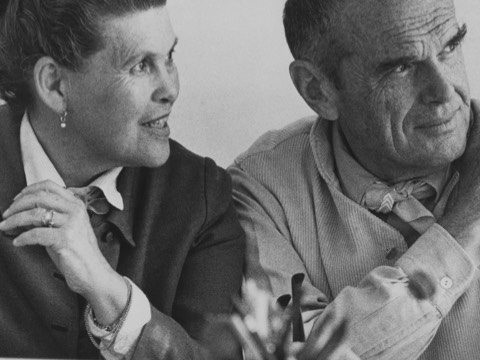
Charles and Ray Eames designed what was originally called Eames Walnut Stool in 1960 as part of an overall design scheme for three lobbies in the newly constructed Time-Life Building at Rockefeller Center in New York – a commission done at the request of Henry Luce, then the chair of Time-Life. Ray took a particular interest in the diminutive but significant piece, which the Eames Office says was inspired by an African stool that stands in the living room of the Eames House in Los Angeles, one of many objects the couple had collected on their travels.
The design is quintessentially Eamesian in its systems approach. The ends are standard across all versions of the stool, while the mid-section of each pedestal features a unique arrangement of curves and angles. The Eames Office originally proposed a number of shapes; Herman Miller commercialised three of them in 1960, alongside the Eames Executive Chair, a padded leather swivel chair that became known as the Time-Life Chair. In 2023, Herman Miller introduced a fourth Eames shape and renamed the stool Eames Turned Stool – a nod to the woodturning process used in manufacturing it.
“The role of the designer is that of a very good, thoughtful host, anticipating the needs of his guests.”


